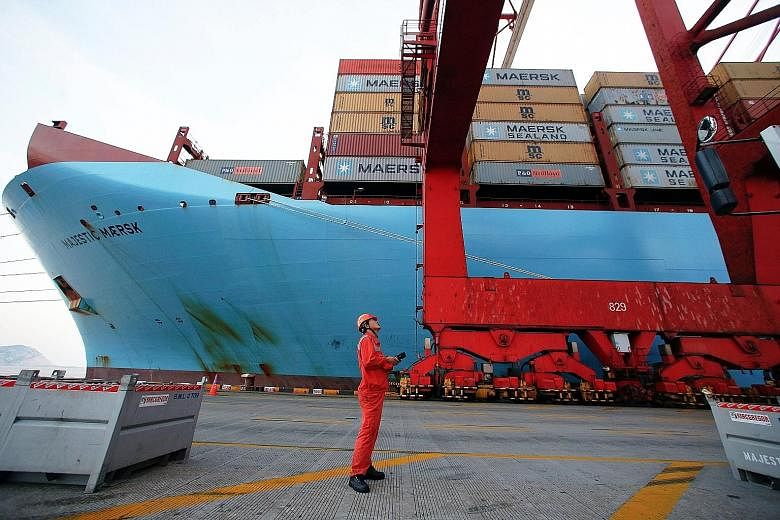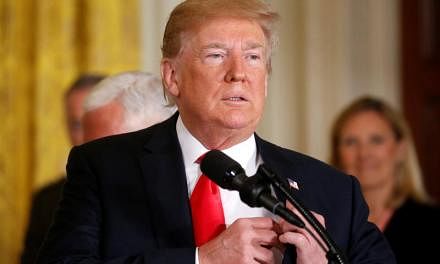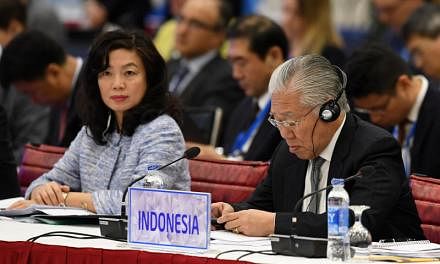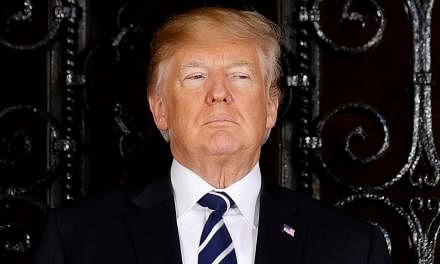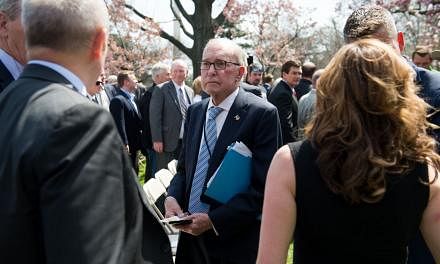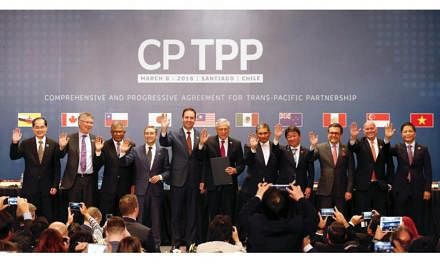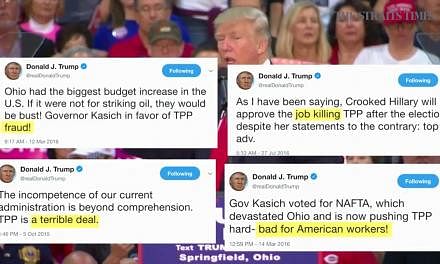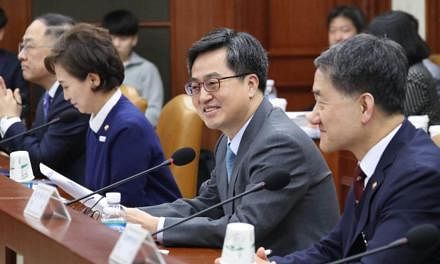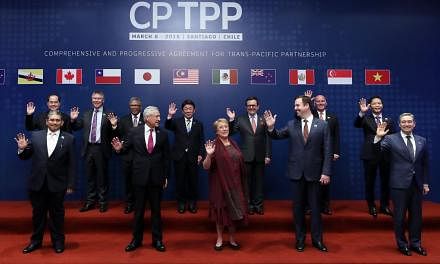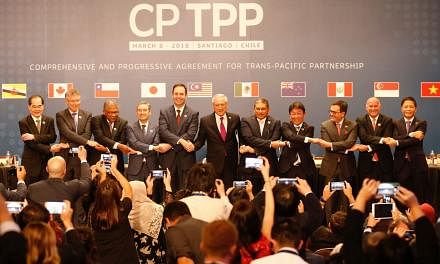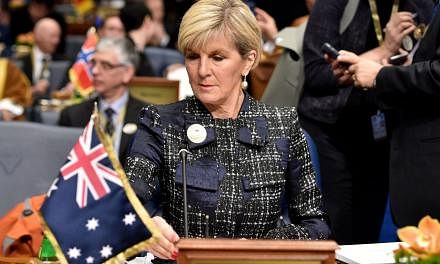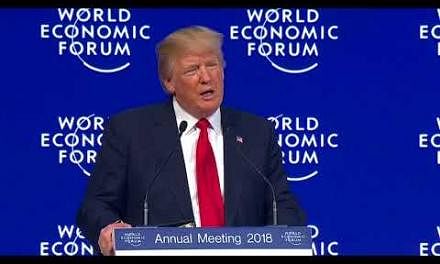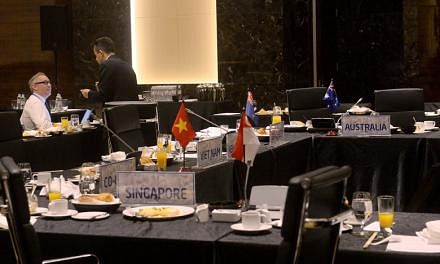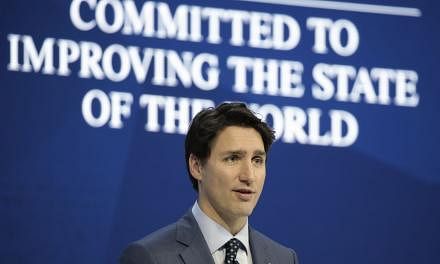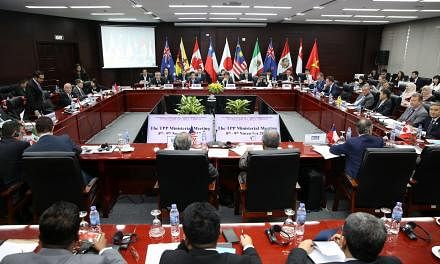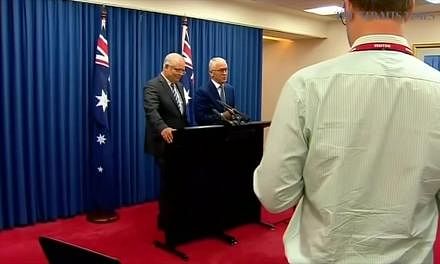A conciliatory phone call between Chinese President Xi Jinping and incoming United States president Donald Trump this week has injected some optimism into bilateral relations, but the spectre of a trade war remains a source of tensions.
Mr Trump had pledged during his election campaign to declare China a currency manipulator and slap a 45 per cent tariff - equivalent to some of the currency devaluation - on all Chinese imports on his first day in office.
Analysts say that although Mr Trump's claims are outdated, he is still likely to act to some extent on his pledges. Dr Deborah Elms, founder and executive director of the Asian Trade Centre in Singapore, said there is evidence that the Chinese currency is about where it ought to be at the moment.
-
45%
Tariff that Mr Trump has pledged to slap on all Chinese imports on his first day in office
15%
Limit of tariff that Mr Trump can reportedly impose for 150 days on all imported goods . The limit can be broken only if the US is declared to be in a state of emergenc
"Nevertheless, he (Mr Trump) could still act to charge China with currency manipulation. It would trigger a host of retaliatory measures that would be problematic," she told The Straits Times.
Even if Mr Trump does not act on this threat, he could launch trade-enforcement cases domestically and at the World Trade Organisation against China, she said.
Analysts say there is no doubt that China will retaliate, based on comments by its officials and media.
Mr David Loevinger, a former China specialist at the US Treasury Department and now an analyst at fund manager TCW Group, said China has every incentive to signal early that "pain will be met with pain".
"Nationalism plays just as well in China. There is no doubt Chinese politicians are eager to be seen standing up to foreigners," Mr Loevinger told The Straits Times.
The Global Times tabloid, declaring that China would take a tit-for-tat approach in its editorial on Monday, wrote: "A batch of Boeing orders will be replaced by Airbus. US auto and iPhone sales in China will suffer a setback, and US soya bean and maize imports will be halted. China can also limit the number of Chinese students studying in the US."
Given the size of the trade relationship between China and the US, which are each other's largest trading partners, a trade war will hurt not only their ties but also the regional economies, say analysts.
Mr Kevin Lai, chief economist for Asia at Daiwa Capital Markets, wrote in a report this year that "imposing a 45 per cent tariff on China would lead to a US$420 billion (S$593 billion) or 87 per cent decline in exports from China to the US on an annual basis".
"The ultimate impact would be a 4.82 per cent loss of gross domestic product," he said.
But some say Mr Trump is right to act against Chinese exports, which do enjoy unfair advantage through hidden state subsidies, such as artificially lower prices for raw materials. For instance, energy subsidies totalling US$27 billion helped China leapfrog from being a net importer of steel in 2000 to the world's largest steel producer and exporter by 2007.
American professors Usha Haley and George Haley wrote in a 2013 paper in the Harvard Business Review: "Even though its highly fragmented industry has no scale economies or technological edge, Chinese steel sells for 25 per cent less than US and European steel."
While some hope Mr Trump might be reined in by policy advisers, others have called his bluff, saying a US president's power is limited to imposing tariffs of up to 15 per cent for 150 days on all imported goods and the limit can be broken only if the US is declared to be in a state of emergency.
Dr Elms said one clue on how Mr Trump would act is whether he names Mr Dan DiMicco - former chief executive of America's largest steel producer Nucor and senior trade adviser for his campaign - as the new US Trade Representative or Commerce Secretary. Citing Mr DiMicco's dislike for China and belief that the US is already in a trade war with China, Dr Elms said: "It's going to get very interesting. I would expect a deteriorating relationship with China over trade."
